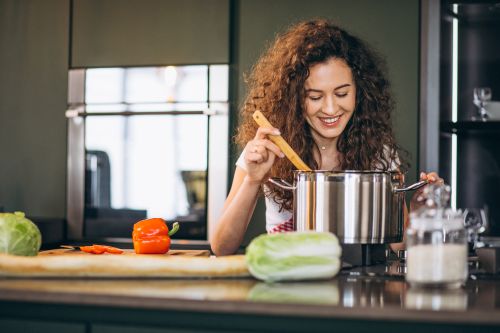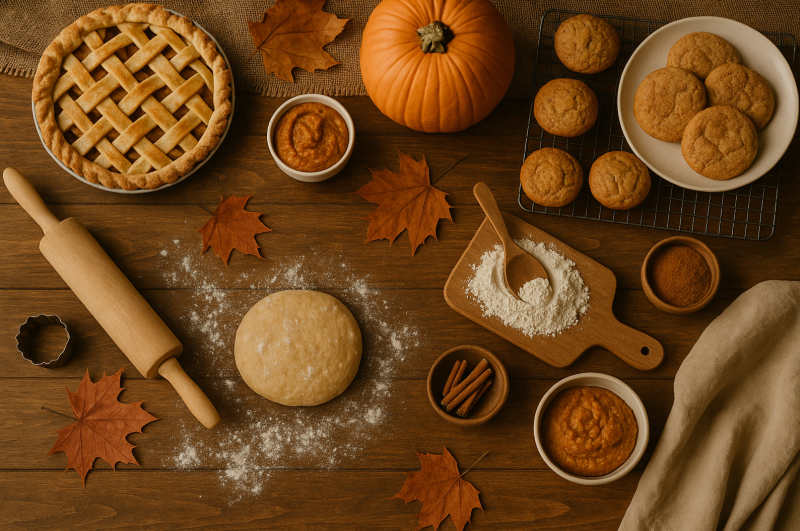
Learn how simple kitchen safety habits can reduce stress and create a calm, grounding cooking experience. Discover how slowing down and creating clarity supports emotional peace.
By Sergio Toledo
Editor-in-Chief, Heed to Heal
Introduction
Cooking should feel comforting, but it often becomes stressful when your mind is rushed or the kitchen feels chaotic. Even simple meals can become overwhelming when you are trying to manage many steps at once. This is why building small safety habits into your routine can create a sense of order. These habits steady your mind and make your time in the kitchen feel calmer and more enjoyable.
When the kitchen feels safe, you naturally feel less tense. You move with more confidence because you know you are working in a clear, grounded space. Stress often comes from uncertainty or distraction, and safety habits help reduce both. The more familiar your routine becomes, the easier it is to stay present.
Reducing stress in the kitchen is not about becoming perfect. It is about creating an atmosphere where you can breathe, slow down, and feel supported by your own preparation. The right habits bring clarity and peace to the moments when cooking might otherwise feel overwhelming.
Slowing Down as the First Safety Habit
Slowing down is one of the simplest ways to create a safer kitchen. When you rush, you are more likely to make mistakes, forget steps, or feel mentally scattered. Taking a moment to pause before you begin can help you settle into a calmer rhythm. This shift makes everything feel more manageable.
When you move slowly, your hands become steadier and your mind becomes clearer. You notice what you are doing instead of pushing through the motions. This helps prevent accidents and reduces the tension that comes from feeling like you must hurry. Cooking becomes an intentional act rather than something you need to get through quickly.
Slowing down also allows you to check in with your space. You can look around, notice what needs your attention, and make small adjustments before you start. These tiny moments of awareness help you feel grounded and turn the kitchen into a place where you can focus without pressure.
Keeping Your Space Clear and Predictable
A calm kitchen begins with clarity. When your space is uncluttered and predictable, your body relaxes because it knows what to expect. A clear counter gives your mind room to breathe. You can see where things are and reach for tools without hesitation. This predictability helps reduce stress because you are not searching or improvising while you cook.
Clearing your space before you begin sets the tone for a smoother experience. You do not have to clean perfectly. Even a quick wipe or a small amount of rearranging can make a big difference in how you feel. You give yourself room to move comfortably, which lowers the chances of knocking things over or feeling overwhelmed by clutter.
A predictable environment also helps you stay present. When everything has a place, you can focus on the food rather than the mess. This creates a gentle sense of order that supports both safety and peace of mind. Cooking becomes less about managing chaos and more about caring for yourself through your environment.
Letting Small Safety Habits Build Your Confidence
Safety habits are not only practical. They give you emotional comfort as well. Each time you act with intention, whether you are wiping a surface or checking the stove, you strengthen your connection to your own well-being. These small habits build trust in yourself and make the kitchen feel like a more supportive place.
With time, these routines become familiar. When you walk into the kitchen, you begin to know what helps you feel steady. You learn to predict your needs, and that awareness reduces stress in a natural and gentle way. Your confidence grows because your environment responds to the care you put into it.
Cooking can be a soothing part of your day. When you create a safe space and move with intention, the kitchen becomes a place where you can breathe and focus on nourishing yourself. Your habits turn into quiet support, helping you move through each step with calm and clarity.
References
- Harvard Health. “Reducing Stress Through Mindful Routines.”
- American Psychological Association. “How Predictability Supports Calm.”
- Greater Good Science Center. “The Benefits of Slow, Intentional Practices.”
Originally published by Heed to Heal, 11.24.2025, under the terms of a Creative Commons Attribution-NonCommercial-NoDerivatives 4.0 International license.





